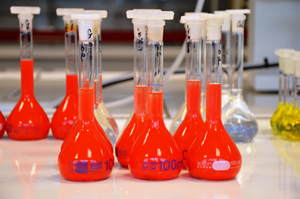Quality control involves determining the chemical, physical and technical properties of formulations in order to check their compliance with the specifications laid down, in particular, by the Food and Agriculture Organization of the United Nations (FAO) and the World Health Organization (WHO). This important step provides assurance that the products have the required physical-chemical properties for optimum application and, provided the conditions of use are adhered to, that they are sufficiently biologically effective against diseases, pests and weeds and do not pose a significant risk to human health or the environment.
In the last two years CRA-W has stepped up its cooperative links with international organisations such as the WHO, FAO, the Global Fund to Fight AIDS, Tuberculosis and Malaria, the United Nations Development Programme (UNDP) and the Collaborative International Pesticides Analytical Council (CIPAC). This mainly involves work in the following areas:
-Contributing to the development of guidelines and reference documents in the field of pesticide physical chemistry.
-Assistance with the drafting, finalisation and publication of physical-chemical specifications published by the WHO and the FAO and used as a basis for pesticide quality control and registration.
-Developing and validating new chemical and physical-chemical analysis methods for assessing pesticide quality.
-Pesticide quality control in the context of international public procurement contracts. This work involves determining the physical-chemical properties of plant protection products and either helping clients to evaluate the results, helping laboratories to interpret analytical methods or helping manufacturers to improve pesticide quality.
-Arranging training courses and conferences on pesticide specifications and analytical methods.
CRA-W is more determined than ever to continue this work with the unwavering aim of improving pesticide quality and reducing the risks to public health and the environment.

